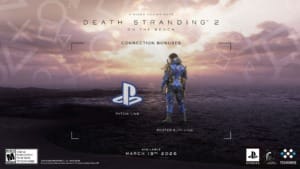Activision removes Call of Duty: WWII from Microsoft platforms after PC hacking reports
Activision pulls Call of Duty: WWII from Game Pass and Microsoft Store on PC after reports of hackers taking control of players' computers.

If you’ve recently played Call of Duty: WWII on your PC through the Microsoft Store or Game Pass, you might have noticed the game has suddenly gone offline. That’s because Activision has taken it down, following a worrying number of reports from players claiming their computers were hacked after launching the game.
Table Of Content
On July 5, Activision confirmed that Call of Duty: WWII, initially released in 2017, was “brought offline” for PC users as the company looks into “reports of an issue.” While no official reason was initially provided, social media posts quickly revealed the scale of the problem.
📢 Call of Duty: WWII
— Call of Duty Updates (@CODUpdates) July 5, 2025
Call of Duty: WWII on PC Microsoft Store was brought offline while we investigate reports of an issue
Players hit with hacks during gameplay
One popular streamer, Wrioh, shared a now widely circulated video clip that shows what happened during a hack. In the video, the game suddenly freezes mid-play. Then, a command-line window and a pop-up text box appear on screen. Soon after, the player’s desktop wallpaper changes, and the warning message “You have been RCEd” appears.
The term “RCE” stands for Remote Code Execution, a serious vulnerability that enables hackers to execute code on another computer. In practice, this means an attacker can plant malware, access your files, and take over your device—all without you knowing until it’s too late.
friendly reminder for cod wwii on pc gamepass. You can literally get your pc hacked.
— BoLT Soaarz (@Soaarz) July 4, 2025
RT to spread awareness pic.twitter.com/qfMiEsRBj0
These attacks affect only the PC versions of Call of Duty: WWII, which are available via the Microsoft Store and Game Pass. The version on Steam, along with those on Xbox and other platforms, remains online and unaffected.
An old flaw may have reappeared in Microsoft’s version
Call of Duty: WWII was only added to Microsoft’s PC platforms in June, just weeks before these hacking incidents began. This timing may not be a coincidence. The version added to Microsoft’s ecosystem may have reintroduced a security flaw that had already been patched in other versions, such as the one on Steam.
Multiple builds of the game exist, and the version supplied through Microsoft channels included older code. That older version may not have received the same security updates, leaving a vulnerability wide open for exploitation by hackers.
As of now, Activision has not reactivated the game for PC players on Game Pass or the Microsoft Store. The company has also not shared a timeline for when—or if—the title will return to those platforms. PC players who want to continue playing Call of Duty: WWII safely are advised to use the Steam version in the meantime, as it remains online and unaffected.
Activision is yet to share a detailed update
While players continue to wait for more information, Activision has not yet posted a detailed breakdown of the vulnerability or its cause. It’s also unclear how many players were affected, or whether any user data was accessed or stolen as a result of the RCE hacks.
If you’re a Game Pass subscriber or purchased the game through the Microsoft Store, it’s worth keeping an eye on official Call of Duty and Activision support channels for updates. For now, though, it’s safest to steer clear of the affected version until the issue is fully resolved.
















